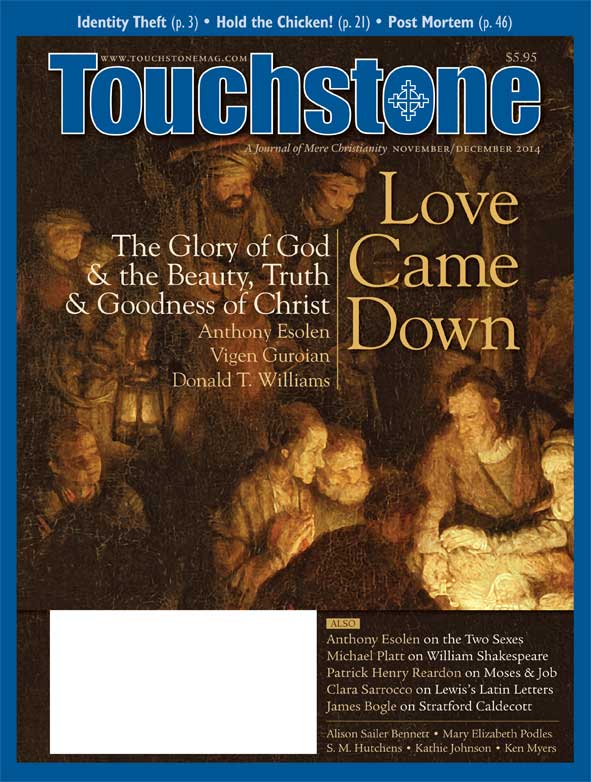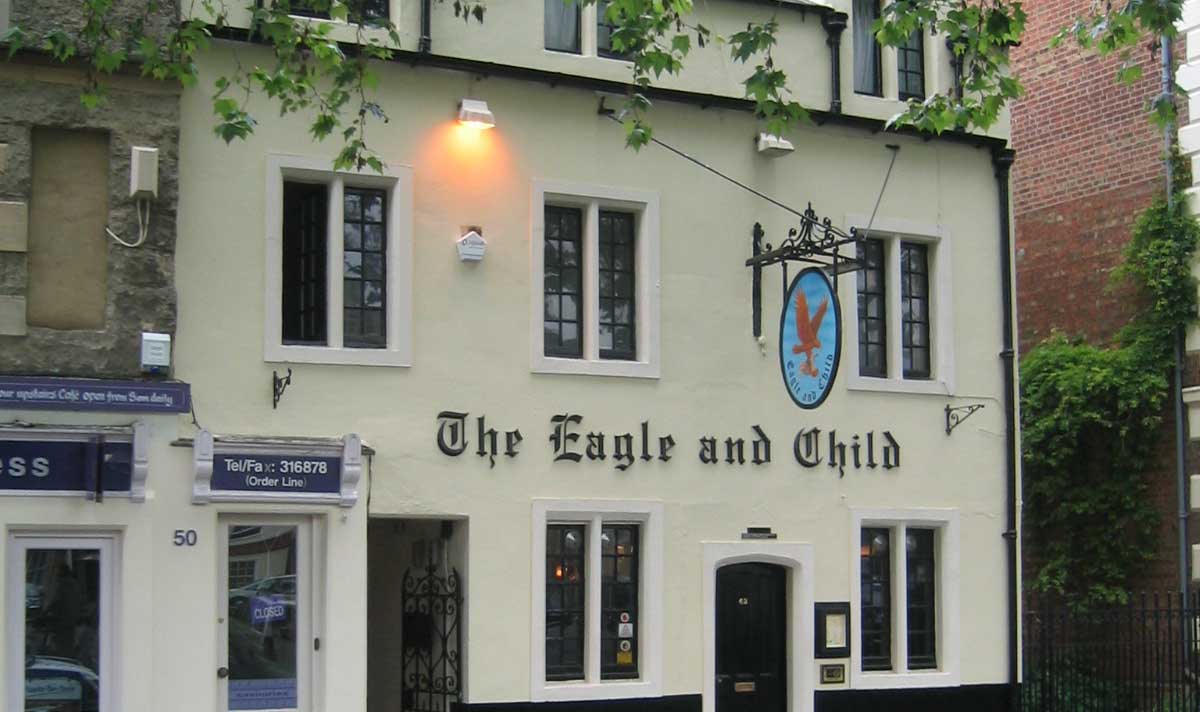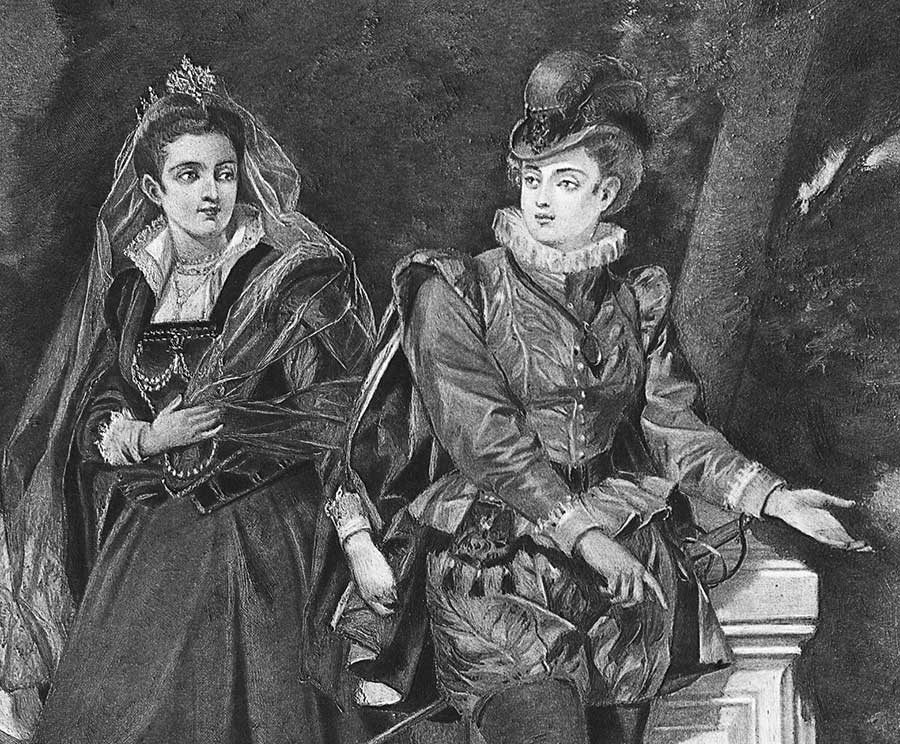Most Beloved Inklings
Clara Sarrocco on the Latin Letters of C. S. Lewis & Don Giovanni Calabria
A year ago, on November 22, 2013, we observed the fiftieth anniversary of the assassination of President John F. Kennedy. The gunshot that killed him was truly "a shot heard around the world." But that day was also the fiftieth anniversary of another death, one that went almost unnoticed at the time except in certain literary and religious circles: the passing of C. S. Lewis. As commemorations of Kennedy's assassination overshadowed remembrances of Lewis, so have Lewis's more famous works overshadowed a collection of his writings that deserve greater attention: his Latin correspondence with the Italian Catholic priest Don Giovanni Calabria.
As part of me rests in both the British and Italian cultures, I was intrigued to learn that C. S. Lewis, the Belfast Protestant and English man of letters, had corresponded with Don Calabria, a Catholic priest from Verona Italy who knew no English. The letters between them were written in Latin since that was the one language both men shared. Martin Moynihan, a former student of Lewis's and an accomplished poet, diplomat, and lecturer in his own right, first published his own translation of the letters in 1989 and then in 2009 put out an updated and corrected version with St. Augustine's Press. In the volume, simply titled The Latin Letters of C. S. Lewis, the letters appear in a side-by-side English/Latin format.
To Publish or Not
The correspondence between Lewis and Father John (as Moynihan refers to him) began in 1947, after Father John read The Screwtape Letters, which had been printed in Italian under the title Le Lettere di Berlicche. He was moved to write to Lewis, and they struck up a correspondence that lasted for seven years, until Father John's death in l954.
Thirty-one of their letters are extant, all but six of which were written by Lewis to Father John, since Lewis usually did not save letters he received from others. He explained why in a note to the Congregation of the Poor Servants of Divine Providence, Father John's order, when they wrote to ask if Lewis had retained any of the priest's letters. Lewis replied that he wished to be more helpful but was in the practice of destroying correspondence shortly after receipt in order to keep confidences entrusted to him from being revealed. He added, "For nowadays investigative researchers dig out all our affairs and sully them with the poison of 'publicity'—to give a barbarous thing a barbarous name."
The six of Father John's letters to Lewis still in existence are copies, which were found among the priest's papers in an envelope labeled "Important letters from our beloved separated brethren." He had also preserved twenty-five of Lewis's letters sent to him.
Given this history, Martin Moynihan initially had misgivings about publishing their private correspondence. In his Preface to The Latin Letters he wrote, "I immediately put myself in the dock. Was I thinking of doing just what Lewis deplored?" But after reading Father John's words, his conscience was eased. "The Lewis letters are already open to view," he noted. "And perhaps, as one who knew Lewis, I could help in introducing them to those who did not." Moreover, the letters "did not contain any confidences which charity would wish to keep covered. On the contrary, they were to me, and might be to others, a source of renewed inspiration." Indeed, these captivating letters are far more than an exchange of courtesies. They reveal certain aspects of Lewis's faith and spiritual experience not found in any of his other writings.
Concern for Christian Unity
Don Giovanni Calabria was born in Verona on October 8, 1873, and died there on December 4, 1954, at the age of 81. His life, though humble, was extraordinary in a spiritual sense. He came from a poor family further impoverished by the death of his father. This forced Giovanni to leave school and work as a shop-boy to a local haberdasher. After military service, he entered the seminary and was ordained in 1901. His parish work took him to hospitals and prisons, and on the way he often encountered abandoned street children. This experience led him to start Casa Buoni Fanciulli (House of Good Children). To help in this work, he established the order of priests and brothers called the Congregation of the Poor Servants of Divine Providence.
His second vocation was that of striving for Christian unity. He wrote an article in the magazine Fides titled "Ut Omnes Unum Sint" ("That They All May Be One"), in which he stated that neither the work nor its success would be easy. But he was able to purchase an abbey near the Lago di Garda, which he turned into a place of respite for people of all religions. Christian unity was the first subject on which he approached Lewis.
Clara Sarrocco is the longtime secretary of The New York C. S. Lewis Society. She has taught classes on C. S. Lewis at the Institute for Religious Studies at St. Joseph's Seminary and is the president of the Long Island Chapter of University Faculty for Life. Her articles and reviews have appeared in numerous publications, including Touchstone, New Oxford Review, Gilbert, The Chesterton Review, St. Austin's Review, and The International Philosophical Quarterly.
subscription options
Order
Print/Online Subscription

Get six issues (one year) of Touchstone PLUS full online access including pdf downloads for only $39.95. That's only $3.34 per month!
Order
Online Only
Subscription

Get a one-year full-access subscription to the Touchstone online archives for only $19.95. That's only $1.66 per month!
bulk subscriptions
Order Touchstone subscriptions in bulk and save $10 per sub! Each subscription includes 6 issues of Touchstone plus full online access to touchstonemag.com—including archives, videos, and pdf downloads of recent issues for only $29.95 each! Great for churches or study groups.
Transactions will be processed on a secure server.
more on C. S. Lewis from the online archives
more from the online archives
calling all readers
Please Donate
"There are magazines worth reading but few worth saving . . . Touchstone is just such a magazine."
—Alice von Hildebrand
"Here we do not concede one square millimeter of territory to falsehood, folly, contemporary sentimentality, or fashion. We speak the truth, and let God be our judge. . . . Touchstone is the one committedly Christian conservative journal."
—Anthony Esolen, Touchstone senior editor













